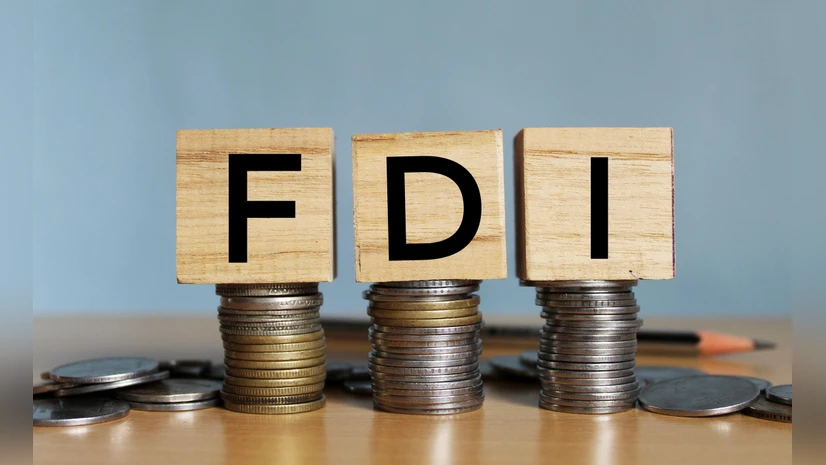Ghana’s investment landscape in 2024 showcased a story of resilience and emerging opportunities, attracting a significant $651.7 million in new investments despite facing global headwinds. While the overall value of Foreign Direct Investment (FDI) experienced a 5% dip compared to the previous year, the number of registered projects saw an encouraging 11% increase, reaching a total of 140. This growth in project numbers, coupled with the substantial inflow of new capital, signals a sustained confidence in Ghana’s economic potential among both domestic and international investors. The influx of capital was anchored by $617.61 million in FDI and a further $34.11 million from local sources, demonstrating a balanced approach to investment growth. Significantly, a majority of the projects, 107 out of 140, were wholly foreign-owned, indicating a robust level of global trust in Ghana’s economic stability and its attractiveness as an investment destination, even amidst global economic uncertainties.
The sectoral distribution of these investments further underscores Ghana’s diversified economic portfolio and its evolving strengths. The services sector emerged as a primary driver of investment, attracting $281.6 million, with key contributions from the burgeoning ICT, finance, and logistics sub-sectors. This performance reflects the growing importance of these sectors in Ghana’s modernizing economy. Manufacturing, another crucial sector for Ghana’s development, followed closely with $220.6 million in investments and accounted for a substantial 66 project registrations. This surge in manufacturing activity positions Ghana as an increasingly attractive hub for value-added production, further diversifying its economic base and enhancing its global competitiveness. Other sectors, including general trade, tourism, and agriculture, also recorded steady inflows, contributing to the overall stability and resilience of Ghana’s investment landscape.
Highlighting the strategic nature of these investments, several flagship projects emerged as testaments to Ghana’s targeted approach to economic growth. The Atlantic Terminal Services Limited, a significant Dutch-Ghanaian joint venture valued at $276.9 million, focused on expanding port logistics capabilities, a key area for enhancing trade and connectivity. Similarly, the Jiudine Ghana Corporation Limited, a Chinese apparel manufacturer, promises to generate over 600 jobs, demonstrating the potential of these investments to drive employment and empower local communities. These prominent ventures exemplify Ghana’s strategy of leveraging foreign capital while fostering local partnerships to stimulate sustainable and inclusive economic growth.
The geographical distribution of investments highlights both opportunities and challenges for Ghana. While the Greater Accra Region continued to be the primary investment magnet, attracting 115 out of the 140 projects, efforts are needed to ensure a more equitable distribution of capital across the country. The Ashanti, Eastern, Central, and Western regions also recorded project registrations, indicating a degree of dispersion. However, the relatively limited investment flow to the northern and rural belts emphasizes the need for targeted policy interventions to unlock the untapped agricultural and renewable energy potential in these regions. A more balanced regional distribution of investments will be essential for achieving inclusive and sustainable development across the nation.
Beyond attracting foreign capital, domestic investment also played a significant role in Ghana’s economic progress during 2024. A notable 54 wholly Ghanaian-owned projects, valued at $1.37 billion, were registered, showcasing a strong level of confidence in the local economy. Furthermore, joint ventures accounted for almost a quarter of all registered projects, underscoring a growing trend of collaboration between local and foreign businesses. This synergistic approach not only facilitates knowledge transfer and technological advancement but also fosters deeper integration of local businesses into the global economy.
The positive trajectory of Ghana’s investment landscape was further reinforced by improving macroeconomic indicators and a stable political environment. GDP growth accelerated to 7.2% in Q3 2024, and inflation saw a significant decline to 23.8% in December, down from 54% two years prior. These positive economic trends, coupled with the peaceful and transparent conduct of the 2024 general elections, solidified Ghana’s reputation as a stable and attractive investment destination within Africa. This combination of economic progress and political stability provides a solid foundation for attracting further investments and driving sustainable economic growth in the years to come. The Ghana Investment Promotion Centre (GIPC) remains committed to prioritizing investments in key sectors such as energy, infrastructure, agriculture, tourism, and digital transformation. Through initiatives like CEO Breakfast Meetings, the Ghana Club 100, and international investment missions, the GIPC continues to actively engage with potential investors and solidify Ghana’s position as a preferred investment hub in West Africa. This proactive approach, combined with the country’s inherent strengths and the ongoing efforts to improve the investment climate, positions Ghana for continued economic growth and development.














